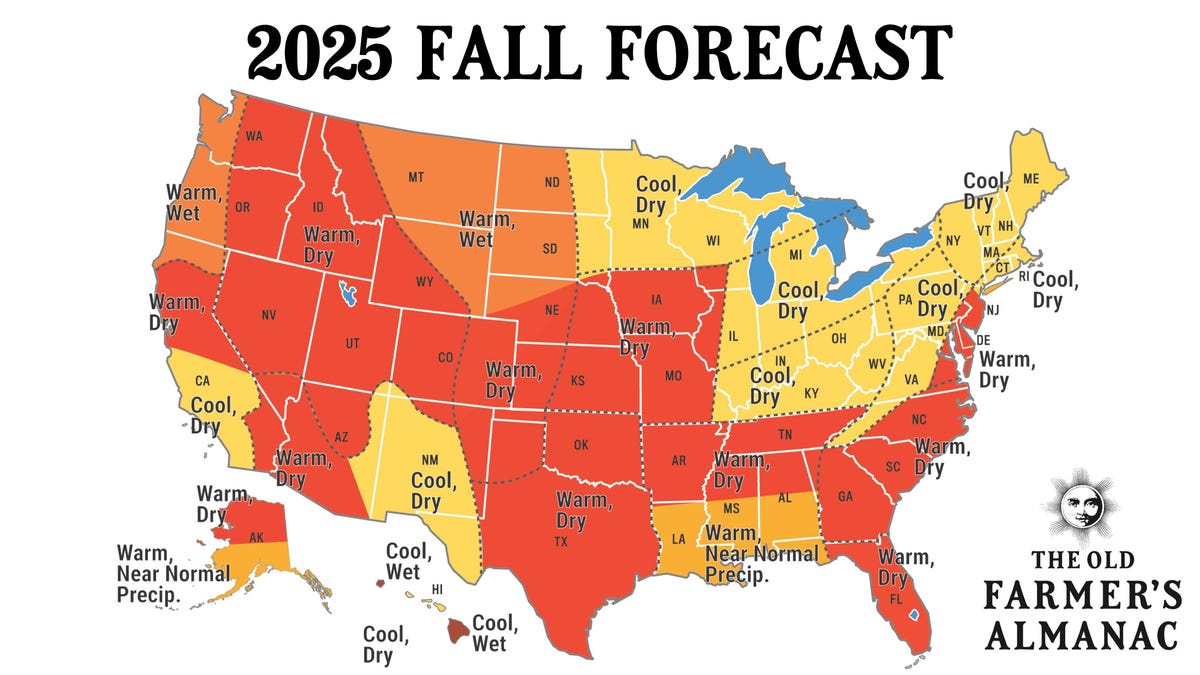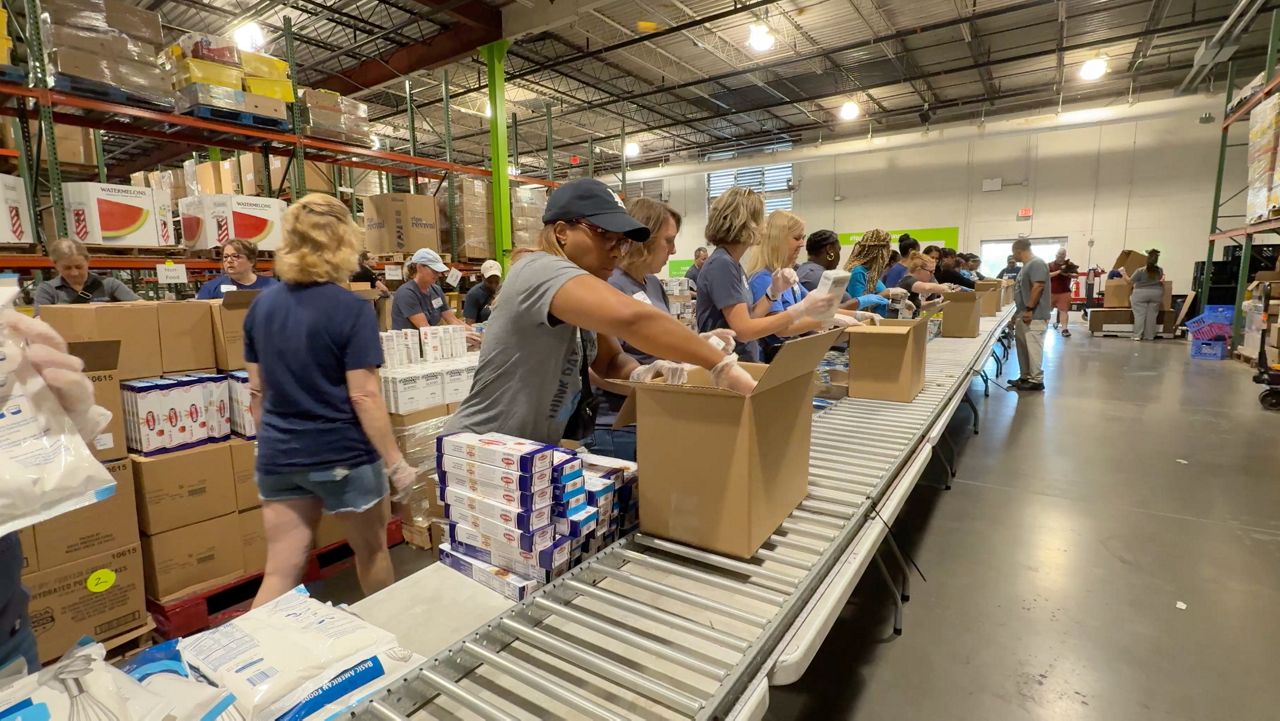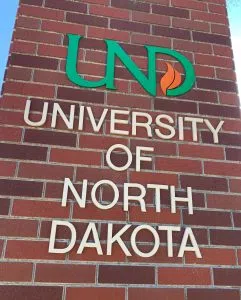Vermont
‘Poorly Behaved’ Influencers Force Closure Of Vermont Road Famous For Fall Foliage

POMFRET, Vt. (AP) — Social media influencers take note: You won’t be able to snap that fall foliage selfie at a popular Vermont spot.
The town has temporarily closed the road to nonresidents due to overcrowding and “poorly behaved tourists.”
The normally quiet dirt road from Pomfret to Woodstock, home to the frequently photographed Sleepy Hollow Farm, will be open only to residents through mid-October.
And local law enforcement plans to enforce it.
In recent years, social media users and photographers have clogged the narrow road for selfies and fall foliage shots of the scenic private property, drawn by its colorful hillside trees, the barn and classic New England home.
Locals say they understand the lure of the beautiful leaves and landscape, but say some visitors have gone too far: blocking traffic with their parked vehicles, obstructing access for residents and emergency vehicles, as well as picnicking and even relieving themselves on private land surrounding the home.
One Instagram poster even tipped followers about how easy it is to go around the entrance gate to the private property, which also has surveillance cameras.
“Poorly behaved tourists have damaged roads, had accidents, required towing out of ditches, trampled gardens, defecated on private property, parked in fields and driveways, and verbally assaulted residents,” said the organizers of a GoFundMe site called Save Cloudland Road.
It’s just a shame,” said local resident Nancy Bassett. “It spoils it for a lot of people.”
Overcrowding driven by social media posts have plagued other destinations around the globe, from a street in Paris to a small city in California that was overrun with visitors when heavy winter rains produced a “super bloom” of wild poppies.
Disneyland-sized crowds hit Lake Elsinore, California, in 2019 “who trampled the very habitat that they placed so high in regard.”
People illegally parked their cars along the freeway, created gridlock affecting emergency responders and infringed on residents’ ability to shop or even get to work, said Mayor Natasha Johnson. This year, the canyons where wild poppies grow and nearby parking areas were completely off-limits, with the sheriff warning that violators could be ticketed, towed or even arrested.

Zion National Park in Utah took another approach to ease overcrowding and improve safety on its popular Angels Landing hike: Hikers are now required to get a permit.
On that back road in Vermont, the increase in foliage season traffic during the last several years has been spurred “by extraordinary tourism interest in private properties” and caused “significant safety, environmental, aesthetic, and quality of life issues,” the Select Board of Pomfret, a town of just over 900, wrote in a message to the community.
Social media users have reacted in various ways. “Honestly it has been photographed so many times I don’t see the point anyway,” one wrote on Facebook. “I definitely can’t blame them as social media has given away so many great spots.”
A local milk truck driver advised: “Please, come to VT and enjoy our foliage. It’s amazing. For the love of God, PLEASE pull off the road before stopping to take pics, and please pull off the road instead of driving 25 in a 50.”
Other posters wrote: “Vermont is really beautiful. So are lots of other places,” and, “Why in the world would you want to visit somewhere with a crowd of people? There are beautiful spots that can be enjoyed and you’ll have them all to yourself.”
The scenic, winding Vermont passage named Cloudland Road is now temporarily closed to nonresidents and lined with no-parking signs and no-photo signs along the farm property.
There’s also a no trespassing sign at the gate.
Locals encourage tourists to visit nearby attractions that can accommodate them with parking and other amenities.
“People love the leaves and we understand foliage and it brings people here and we don’t want that to stop,” said Linda Arbuckle, a clerk at the local general store. “Unfortunately some people, not all, have taken it to the next step, where people have come home and people have been on their porches having lunch.”

Vermont
Vermont murder suspect arrested in New York

PORTLAND, N.Y. (WCAX) – Police say the suspect in a Vermont murder was arrested in New York on Wednesday.
Terrence Biggs Jr., 25, of Michigan, was wanted in the deadly shooting of Austin Rodriguez, 26, of Rutland. It happened at a home on Summer Street on April 22.
Investigators say state police in New York arrested Biggs during a traffic stop in Portland, New York, that is in western New York, early Wednesday morning.
Biggs is charged with second-degree murder.
We still don’t know what authorities think led to the shooting or what the connection was between the two men.
Copyright 2025 WCAX. All rights reserved.
Vermont
Vermont shelter celebrates 68 adoptions in one month

Vermont
A covered bridge quest in Vermont – VTDigger


This story by Tim Calabro was first published in The Herald on Sept. 11, 2025.
Phill Gatenby rolled over the Moxley Bridge in Chelsea with a plastic skeleton riding shotgun in his Jeep, having made the long drive from Brattleboro for an early morning visit. Just a year ago, the Manchester, England native — by way of Florida — had never laid eyes on a covered bridge. Now he’s smitten.
Gatenby recalled seeing a covered bridge while driving around and thinking, “Oh, that’s interesting. I’d never seen a covered bridge in my life before. Never really heard of them,” he said. “A couple days later, I was going to Townshend, and all of a sudden it’s the Dummerston Bridge, and I’m just like, different size, different shape, different color.”
He stopped for directions and as he got lost on the back roads, he saw more and more covered bridges.
What started as casual curiosity has evolved into a quest: visit and film all 100 of Vermont’s authentic, historic covered bridges and share the journey on YouTube in a series titled “Vermont’s 100 Covered Bridges.”
So far he’s been to 50 and cranked out 37 videos of his visits — one every Sunday.
The most recent set of episodes has focused on the covered bridges of Tunbridge, Chelsea, and Randolph.
No two are quite alike. From king and queen trusses to parallelogram-shaped spans built on bends, like some on the First Branch, Gatenby has come to appreciate their variety and character.
And, stepping back from the bridges, the entire scene fascinates Gatenby.
“I mentioned this in the Kingsbury Bridge [episode]. I was at the bridge and I looked, and you’ve got the green mountains in the background and rolling hills. Then you’ve got the farm with the — is it the corn towers? — the river and a covered bridge. And it just says, like, you can’t get more Vermont!”
Gatenby’s process is rigorous. Each episode takes hours to shoot and edit. He gets different angles — sometimes driving through a bridge three or four times for the right shot. He’s waded into rivers, climbed steep banks, and once filmed inside a long-retired bridge that had been turned into a town shed.
“I try and do something that’s consistent,” he says. “So it’s, you know, the same start, the same middle. I go in the river. I’ve been in every single river so far.”
Gatenby credits community access TV stations — first Okemo Valley TV in Ludlow and now Brattleboro Community TV — for helping him build his skills and loaning him equipment.
“They literally brilliantly sat down and five, six, seven weeks went through how you do it,” he recalled.
Gatenby’s episodes go out via Okemo Valley TV’s YouTube channel and have regular times on the Okemo Valley and Brattleboro TV stations.
Form, Function, History
Vermont once had more than 600 covered bridges, Gatenby noted, but flooding and age have winnowed down the number greatly. Now, 100 remain and many towns hold clusters of them.
Tunbridge, for example, boasts five (Flint, Larkin, Mill, Cilley and Howe), with the Moxley bridge just over the Chelsea line. Randolph has three (Kingsbury, Gifford, and Braley or Johnson), all of them along the Second Branch.
Gatenby pointed out that three of the First Branch bridges were built by the same person, Arthur Adams. That’s a phenomenon common to covered bridges, Gatenby noted. Oftentimes the same person who had the skills to build a bridge would become the area’s go-to expert.
As Gatenby visits each of the 100 covered bridges spread throughout the state, he points out the history and construction techniques used in each, particularly the suspension methods unique to covered bridges. Most covered bridges in the White River Valley make use of modified king trusses, posts fitted into a triangle, which provide strength to the structure. Some, like the Moxley bridge, use both king trusses and square queen trusses around them.
Vermont’s covered bridges aren’t just structural relics, though — they’re cultural icons.
Some have graced the silver screen, including the Kingsbury Bridge in Randolph, used by Alfred Hitchcock as scenery in his 1955 film “The Trouble with Harry.”
“North by Northwest” has its dramatic crop duster strafing Cary Grant, Gatenby jokes in one of his episodes before cutting to a humble, scenic shot featuring the South Randolph bridge. “Unfortunately, it wasn’t quite as glamorous as that!”
The Chiselville bridge in Sunderland — Gatenby’s favorite so far — featured in “Baby Boom,” Diane Keaton’s 1987 film, and a year later, in the 1988 Chevy Chase and Madolyun Smith Osborne comedy, the Upper Falls bridge in Weathersfield made for a memorable gag (“I wouldn’t go that way if I were you”).
Another memorable stop is East Corinth, where the prop bridge used in “Beetlejuice” was fabricated out of whole cloth for the two weeks of filming. “Thousands of people go there every year,” he said, noting that the set-piece, used now as a shed at a ski area, doesn’t count among the authentic and historic bridges he films.
Nor, he said, does the Quechee Bridge. Though it is often mistaken for a traditional covered bridge, it’s just a facade.
“It’s concrete and steel. There’s very little wood,” Gatenby said. “You see the wood on the outside and the roof.”
Traditional bridges are completely made from wood and use a variety of truss systems to strengthen the span.
Place and Purpose
Gatenby moved to Vermont from Florida in July of last year. He now lives in Brattleboro with his wife and works as a shift supervisor at a home for adults with mental health issues.
“I’m a trained youth worker in England,” he said, having spent years working for the Prince’s Trust, a charity founded by King Charles. His day job might be demanding, but the early hours leave room for exploration.
“Three o’clock to 11:30 at night, so the daytime allows me to spend time in the TV studio,” he says. That flexibility has enabled him to squeeze in long road trips, sometimes filming six or seven bridges in a single day. “I’ve got to do minimum six, seven bridges each trip now,” he added. “To make it worth it.”
This Sunday, the show’s 38th episode will be released.
“I’m doing a little special 50th episode,” he said, noting the halfway point in the 100-bridge journey. “That’s where I’m bringing in stuff like the Quechee bridge. Because people said, ‘Oh, you didn’t go to the Quechee.’”
As the series nears its midpoint, Gatenby’s audience is slowly growing, both online and in the communities he visits.
“It’s just amazing … you know, and I’m just visiting them all,” he said, “places that I wouldn’t have got to see otherwise.”
With 50 more bridges to go, Vermont’s covered bridge guy still has miles to travel and stories to uncover.Gatenby’s series of covered bridge videos can be watched on Okemo Valley and Brattleboro public television stations or found on YouTube.
-

 World1 week ago
World1 week agoTrump and Zelenskyy to meet as Poland pressures NATO on no fly zone over Ukraine
-

 Technology1 week ago
Technology1 week agoNew Evite phishing scam uses emotional event invitations to target victims
-

 Health1 week ago
Health1 week agoDiabetes risk quadruples with use of popular natural remedy, study finds
-

 Politics1 week ago
Politics1 week agoHouse plans Thursday vote on government funding bill to extend spending through November
-

 Business1 week ago
Business1 week agoDisney, Universal and Warner Bros. Discovery sue Chinese AI firm as Hollywood's copyright battles spread
-

 Health1 week ago
Health1 week agoWho Makes Vaccine Policy Decisions in RFK Jr.’s Health Department?
-

 Finance3 days ago
Finance3 days agoReimagining Finance: Derek Kudsee on Coda’s AI-Powered Future
-

 Lifestyle1 week ago
Lifestyle1 week agoBobbi Brown doesn’t listen to men in suits about makeup : Wild Card with Rachel Martin



















